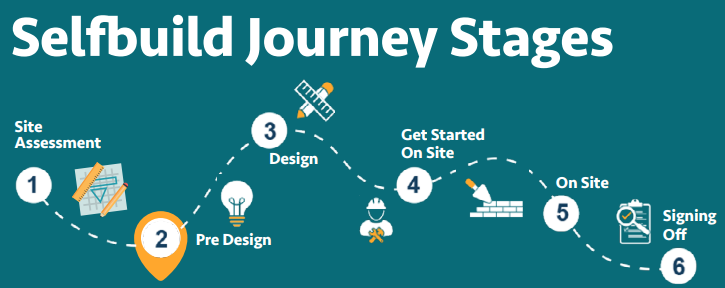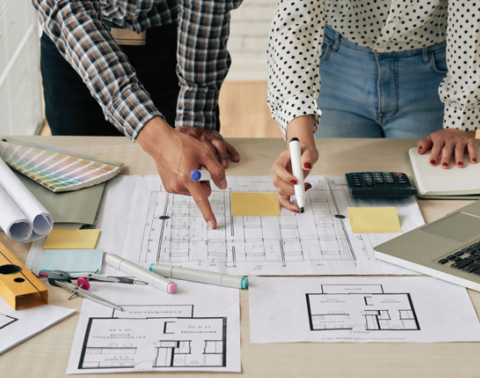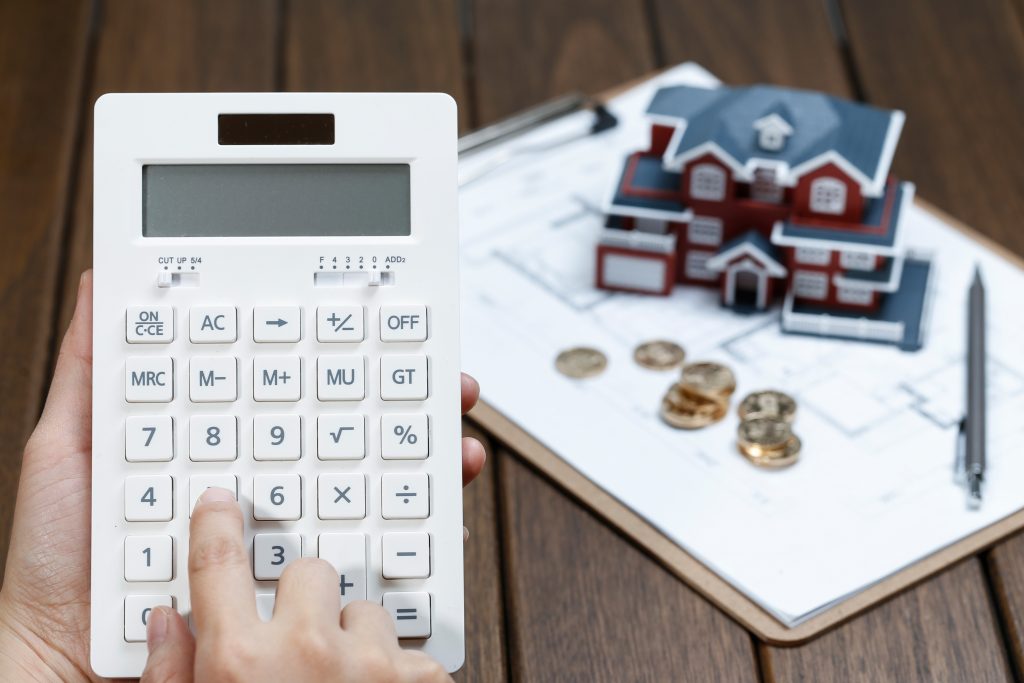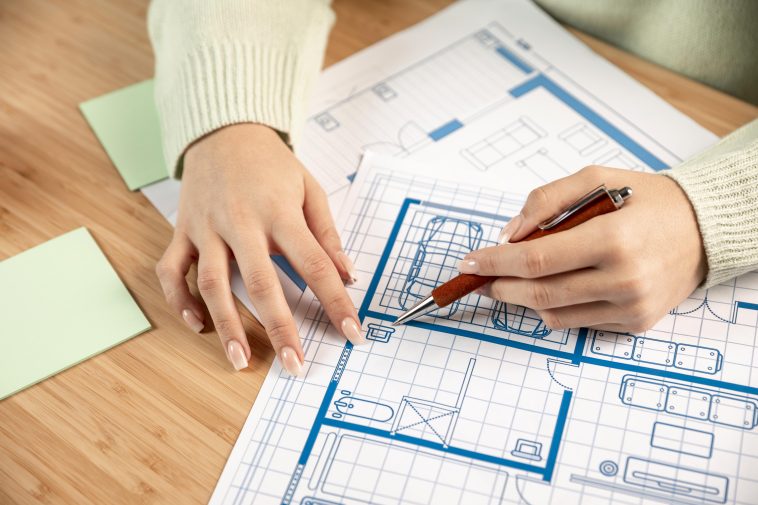Now that you know the site is viable, what do you need to get started with your self-build project? We look at what prep work needs to be done.
In this article we cover:
- What key decisions you need to make
- How to go about it
- Pricing up the project
- Savings from going direct labour vs main contractor
This early stage of your project is all about refining what you’re going to build and how you’re going to finance it.
Needs and wants
The best part about building your own house has to be being able to choose everything that goes into it. But it can be a curse too, when the time comes to make decisions and you feel you haven’t had the time to weigh all your options.
When you get on site, it all moves very quickly and you’ll be asked to make decisions on the spot. So the more legwork you’ve done in advance, the more likely it is that you’ll be happy with the finished product.
[adrotate banner="58"]
On a fundamental level, this is also the time to knuckle down and decide what you really need from this house. Size is an important factor as are current and future needs, which will depend on your circumstances. It’s the time to truly discern between what you need and what would be nice to have.
To help you through this process, you’ll need an architectural designer. This can be an architect or an chartered architectural technologist, both of which are trained in design. Investing in good design will pay dividends. Crucially, it will also mean that a professional designer is double checking that what you are building is regulations compliant.
Stage 2: Pre Design
The Pre Design stage of the Selfbuild Journey on selfbuildextendrenovate.co.uk is organised as follows:
– Working out your requirements
– Choosing an architectural designer
– Collating your ideas
– Building methods
– Other key structural decisions
– Energy efficiency and the environment
– Budget & Financing

How to go about the build
Your choice of building methods and other structural decisions will need to be taken into account early on, especially if you choose to go with a modern method of construction. Structural decisions tend to have knock-on effects on things like where to put services or how far ahead you need to plan for finishes.
Another big decision to make is how personally involved you will get. Do you want to do some DIY? Will you manage the project in what’s known as direct labour? A direct labour build means you take charge of hiring all of the tradesmen yourself, from plumber and electrician to blocklayer.
Pricing it up
Of course, another essential element is finding out how much you can and want to spend on the project, what the financing options are (who will lend you the money and how), and how to get an accurate cost figure, and ways to stick to it. There are plenty of budget busters; to avoid them you need to know what they are – one of which are the development contributions in ROI.

ASK THE EXPERT
How much can you save going direct labour?

I get asked this question at least once a week, and while you could just simply say it’s going to save you between 10 to 20 per cent on average, that’s not the whole picture.
That will all depend on what you see as value for money. What time do you have on your hands? Have you got the knowledge to manage/ organise and deal with the inevitable issues and problems
that can arise?
Quite often the potential savings made on running the project yourself can be outweighed by loss of time making the wrong decisions, overordering /underordering, plus having to make snap decisions without the experience or knowledge to make them. All of which is likely to cost you money.
There’s quite a bit more to project managing than meets the eye. Minor problems with a builder can be sorted very quickly. But on your own, without that experience and know-how, a small issue can quickly turn into a more serious one. Which can lead to a stressful and costly outcome, with your family life getting impacted.
So, yes it can save you money but this comes with a serious word of warning. Think very long and hard before undertaking a project especially if you have to work full time, have little knowledge of the processes, and don’t like stress. It can often end up costing more than employing a reputable builder, on all levels.
DJ Rasdale of DJ Build Estimations



